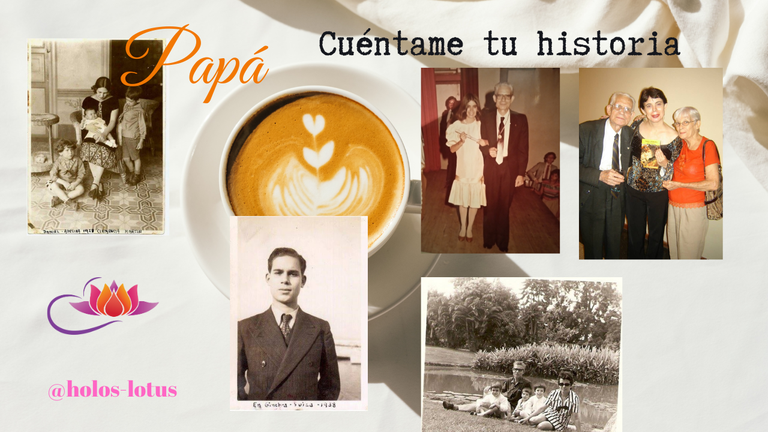
PAPÁ CUÉNTAME TU HISTORIA

A mi padre con mi amor y agradecimiento
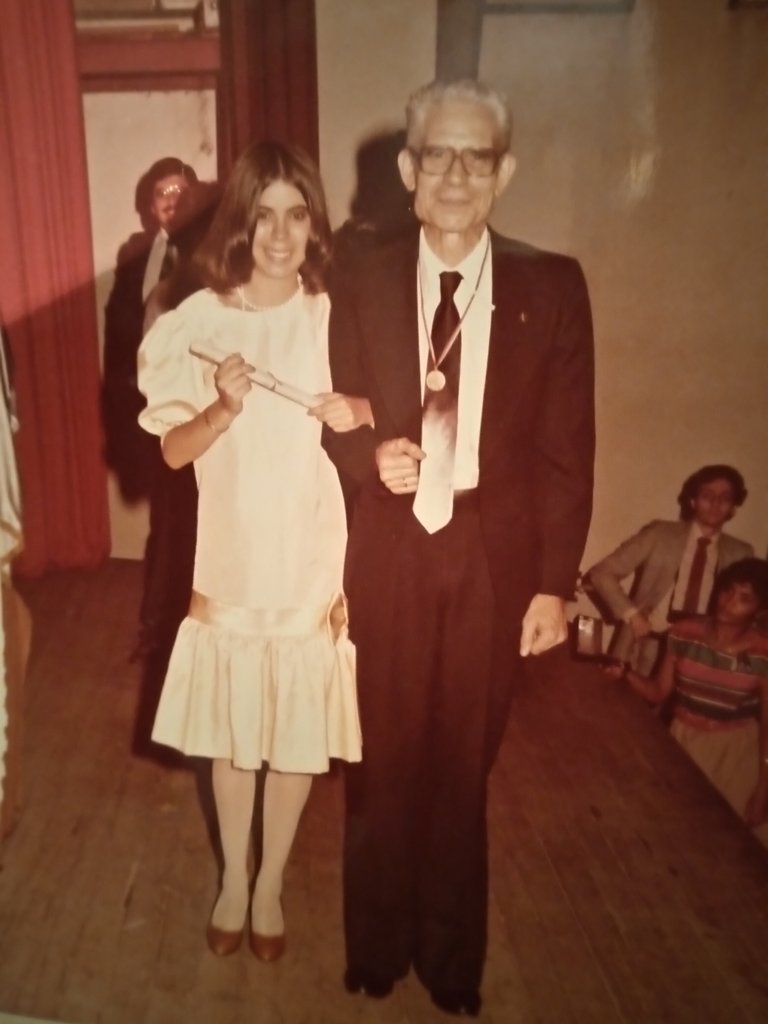
Con papá en mi graduación de bachiller
Ser padre
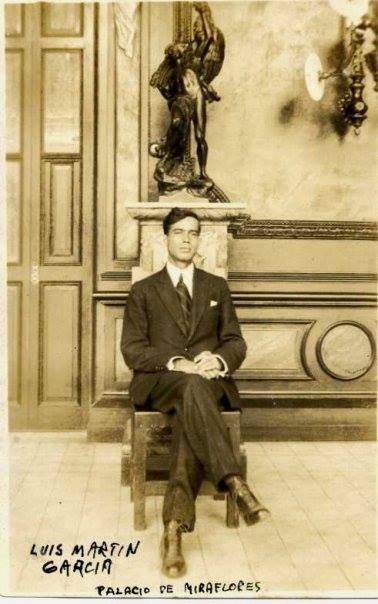
mi abuelo Luis Martín García, el padre de mi padre
Nuestro padre nos da la mitad de nuestro ser, y dice Carlos Fraga, un coach de vida venezolano, que sólo por eso debemos honrarlo, agradecerle el hecho de que nos dio la existencia. Esto quizá no resulta fácil para aquellos hijos que no tuvieron su padre biológico cerca, o tuvieron una relación difícil con él y consideran que no fue un buen padre. No fue mi caso, yo y mis tres hermanas tuvimos a mi padre cerca hasta que murió en 2018, a los 96 años de edad.
Por lo general, los hijos no venimos con un manual, y tanto a los padres como a los hijos -aún en un hogar estable y en un contexto económico y social más o menos favorable- nos toca aprender a convivir, a crecer juntos, a tolerarnos y entendernos como somos. Porque cada hijo es distinto, y si a un papá le toca criar varias hijas o hijos, como fue el caso de papá, cada hijo es una experiencia distinta, para toda la vida. No fui madre, y ya no lo seré, pero me imagino que la responsabilidad de criar un hijo no es una tarea fácil.
La sociedad, tradicionalmente, le otorga al hombre el rol de proveedor. Hay una historia muy larga detrás de ese rol…En principio el hombre físicamente es más fuerte, es menos emocional, la mujer se embaraza, tiene la responsabilidad de la crianza de los hijos. Así que desde la época de las cavernas, el hombre sale a cazar, es decir trae el alimento, protege al grupo familiar y la mujer se queda cuidando la casa y los hijos.
Esto ha cambiado un poco hoy, en muchos hogares establecidos las responsabilidades son compartidas; pero de todas maneras se espera que la figura paterna, el hombre, tengo el rol protagónico en el hogar respecto a ser el principal proveedor, y así también que ponga el orden y la disciplina. Aunque hay hogares en que la madre es la que impone las normas, en caraqueño diríamos, la que te lanza la chola, si te portas mal.
Mi padre

Cuando era niña adoré a mi padre, siempre hubo una gran afinidad entre nosotros. Mis dos hermanas mayores le dieron mucha guerra, fueron niñas difíciles, rebeldes. Yo fui de temperamento tranquilo, introspectivo y era cariñosa. Cuando crecí y entré en la etapa difícil de la preadolescencia y adolescencia nos distanciamos un poco, pero inicié con él, y hasta que murió, una serie de conversaciones sobre su vida y sobre los ancestros, especialmente los abuelos, sus padres, a quienes no conocí porque ya habían muerto cuando nací.
Los álbumes de fotografía
Hay dos actividades que papá disfrutaba mucho, la fotografía y la música. Por eso en casa había una buena cantidad de álbumes de fotografía. Fotos familiares, de su padre, su madre, sus tres hermanos, el tío Martín, el mayor, el tío Hernán, el menor y la tía Clemencia, pero también algunos tíos y primos. Y así también algunas fotografías de amigos de distintas épocas. Igualmente fotografiaba lugares y eventos. Una de mis diversiones desde niña era ver los álbumes de fotografía, me sentaba en la sala con papá y le preguntaba por las personas y lugares que estaban en las fotos.
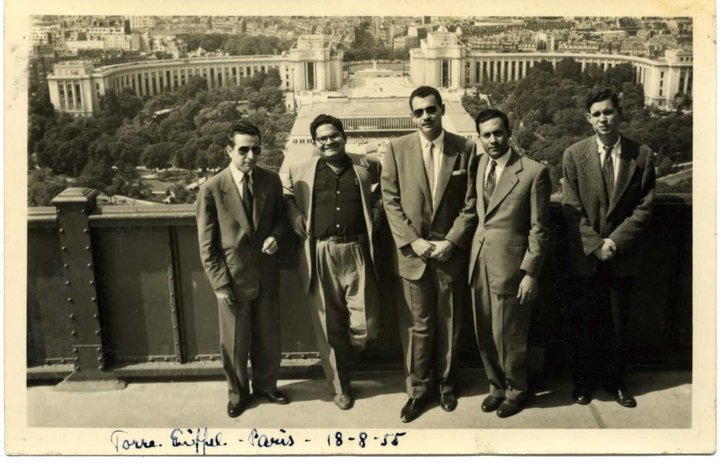
Papá con unos amigos en la torre Eiffel de París, 1955
Cuando ya era adulta y lo encontraba en la sala, me sentaba a conversar con él sobre algunos aspectos de su vida, algunas de las ciudades donde vivió que no conozco (París, New York, Ginebra); o sobre la Caracas sin edificios que vivió en su infancia. Cuando nació en 1921 mi ciudad era de un solo piso y muchas urbanizaciones hoy llenas de edificios eran entonces haciendas de café o de caña. Me gustaba conversar sobre esa clase de cosas con él, que para mis hermanas no tenían ningún interés.
Conversando con papá entendí por qué era un hombre tan metódico y tan disciplinado y le costaba tanto expresar sus sentimientos. Papá hizo sus estudios primarios durante la infancia en el Deutsche Schule (El Colegio Alemán), un colegio muy estricto donde no le hablaban en español; además, su papá, que fue abogado y juez, fue secretario de Juan Vicente Gómez, que era entonces el presidente de Venezuela y a Gómez no le gustaba Caracas, la capital, por eso se estableció en Maracay.
Entonces el abuelo Luis Martín, de lunes a viernes estaba en Maracay trabajando con el presidente y regresaba a Caracas los fines de semana. La abuela, Adelina, que tenía un carácter difícil, no era muy feliz con que su esposo sólo estuviera en casa los fines de semana, mientras ella se quedaba sola, con sus cuatro hijos. Papá estaba todo el día en un colegio súper estricto y al llegar a su casa encontraba a una mamá que no era cariñosa y vivía brava.

Papá, sentado en el piso, junto a la abuela Adelina y sus hermanos Martín y su hermana menor Clemencia, 1928
Cuando era adolescente a su padre le diagnosticaron cáncer y el gobierno le dio un cargo consular en Ginebra, Suiza, para que se operase en una clínica de esa ciudad. Papá ya había terminado los estudios de primaria e inició allí estudios en el área comercial y nuevamente se encontró en una institución muy severa, en la que incluso lo llegaron a agredir físicamente y mi abuelo fue a la institución y reclamó. Su familia logró regresar a Caracas en medio de la Segunda Guerra Mundial, y sus padres se divorciaron, por diferencias irreconciliables, en una época en la que te casabas para toda la vida.
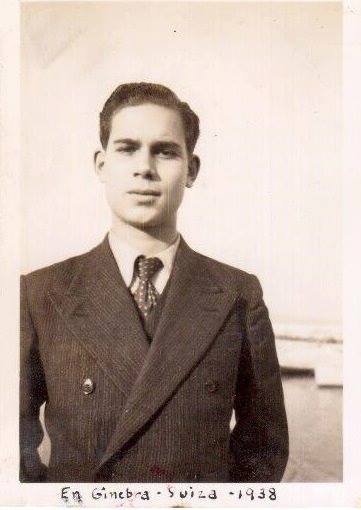
Papá adolescente, en Ginebra, Suiza, 1938, pocos años antes de que sus padres se divorciaran
Por una razón que nunca me quedó clara, luego de que se divorciaron la abuela no aceptó ayuda económica de mi abuelo y papá, que apenas era mayor de edad, empezó a trabajar para ayudar a la abuela con los gastos. Luego de una infancia con una disciplina muy estricta, un padre que apenas veía y muy poco afecto en casa, le tocó una juventud con muchas responsabilidades. Su hermano mayor, Martín, se había ido al ejército muy joven y sus hermanos menores eran niños todavía cuando los abuelos se divorciaron. A veces juzgamos a nuestros padres sin saber o sin entender que generalmente somos producto de las circunstancias que nos han tocado vivir y nos marcaron.
¿Qué valores nos dejó papá?
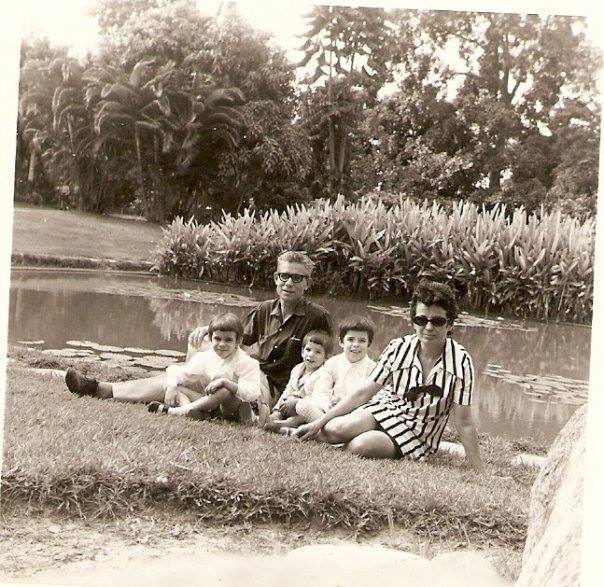
La familia de paseo en el Parque del Este
A diferencia de su padre, papá siempre estuvo presente y dándonos apoyo, incluso cuando ya no debía hacerlo. Papá siempre vivió para su familia, su familia era lo más importante para él. Salía de su trabajo a su casa y él único desvío que se permitía era pasar por la panadería a comprar pan o por el supermercado. Los fines de semana eran para su familia, para que su esposa y sus hijas se recrearan, se divirtieran. Nos enseñó con el ejemplo la importancia de la responsabilidad.
Así también nos enseñó otros valores fundamentales como la honradez, la prudencia, la generosidad. Recuerdo que durante varios años dio apoyo económico a misiones católicas en La India; durante algunos meses tuvimos en casa una familia que había sido deportada de Estados Unidos y el padre, un italiano que se había quedado ilegalmente, no tenía trabajo, dinero ni a donde llevar a su esposa y sus cinco hijas. Siempre que estaba en sus manos dar apoyo a otras personas lo hizo, e igualmente con su familia, si cualquiera de nosotras necesitaba apoyo nos lo daba.
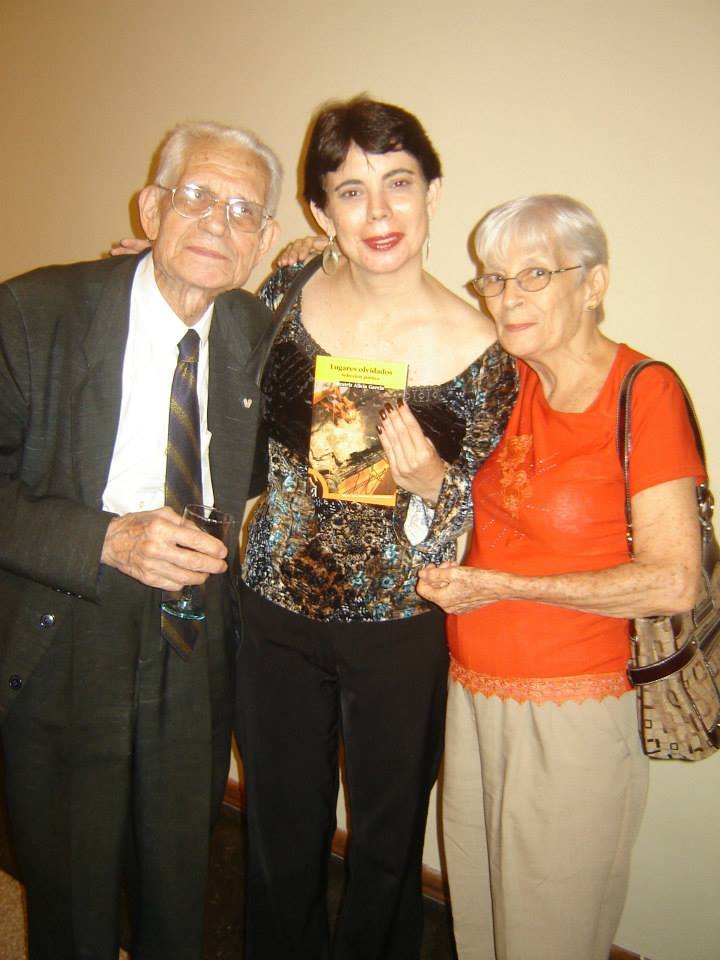
Con papá y mamá el día que se presentó mi antología poética "Lugares olvidados" en la Galería de Arte Nacional
Muchas gracias a la comunidad Holos & Lotus por esta bella iniciativa que nos permite conectarnos con esas historias con nuestro padre.
Todas las fotos que ves pertenecen a mi álbum familiar

DAD, TELL ME YOUR STORY

To my father with my love and gratitude

With Dad at my high school graduation
Being a parent

My grandfather Luis Martín García, my father's father
Our father gives us half of our being, and Carlos Fraga, a Venezuelan life coach, says that for that alone we should honor him, thank him for the fact that he gave us existence. This is perhaps not easy for those children who did not have their biological father close to them, or had a difficult relationship with him and consider that he was not a good father. This was not my case, I and my three sisters had my father close to us until he died in 2018, at the age of 96.
Generally, children do not come with a manual, and both parents and children -even in a stable home and in a more or less favorable economic and social context- have to learn to live together, to grow up together, to tolerate and understand each other as we are. Because each child is different, and if a father has to raise several daughters or sons, as was the case with Dad, each child is a different experience, for life. I was not a mother, and I will not be one anymore, but I imagine that the responsibility of raising a child is not an easy task.
Society traditionally gives men the role of provider. There is a very long history behind that role... In principle, the man is physically stronger, he is less emotional, the woman gets pregnant, she has the responsibility of raising the children. So, from the time of the cavemen, the man goes out to hunt, that is to say, he brings food, protects the family group and the woman is left to take care of the house and the children.
This has changed a little today, in many established homes the responsibilities are shared; but in any case it is expected that the paternal figure, the man, has the leading role in the home with respect to being the main provider, and also that he establishes order and discipline. Although there are homes in which the mother is the one who imposes the rules, in caraqueño we would say, the one who throws the chola at you, if you misbehave.
My father

When I was a child I adored my father, there was always a great affinity between us. My two older sisters gave him a lot of war, they were difficult, rebellious children. I was of a quiet temperament, introspective and was affectionate. When I grew up and entered the difficult stage of pre-adolescence and adolescence we distanced ourselves a little, but I started with him, and until he died, a series of conversations about his life and about the ancestors, especially the grandparents, his parents, whom I did not know because they had already died when I was born.
Photography albums
There are two activities that Dad enjoyed very much, photography and music. That's why at home there were a lot of photo albums. Family photos, of his father, his mother, his three brothers, uncle Martin, the eldest, uncle Hernan, the youngest and aunt Clemencia, but also some uncles and cousins. And also some photographs of friends from different periods. I also photographed places and events. One of my hobbies since I was a child was to look at the photo albums, I would sit in the living room with my father and ask him about the people and places that were in the photos..

Dad with friends at the Eiffel Tower in Paris, 1955.
When I was already an adult and found him in the living room, I would sit and talk with him about some aspects of his life, some of the cities where he lived that I don't know (Paris, New York, Geneva); or about the Caracas without buildings that he lived in his childhood. When he was born in 1921 my city was one-story and many urbanizations today full of buildings were then coffee or sugar cane plantations. I liked to talk about those kinds of things with him, which were of no interest to my sisters.
Talking with Dad I understood why he was such a methodical and disciplined man and why it was so difficult for him to express his feelings. Dad did his primary studies during his childhood at the Deutsche Schule (The German School), a very strict school where they did not speak to him in Spanish; besides, his father, who was a lawyer and judge, was secretary to Juan Vicente Gómez, who was then the president of Venezuela and Gómez did not like Caracas, the capital, that's why he settled in Maracay.
Then grandfather Luis Martin, from Monday to Friday was in Maracay working with the president and returned to Caracas on weekends. The grandmother, Adelina, who had a difficult character, was not very happy that her husband was only at home on weekends, while she was left alone with her four children. Dad was in a very strict school all day long and when he got home he found a mother who was not affectionate and was very angry.

Dad, sitting on the floor, with grandmother Adelina and his brothers Martin and younger sister Clemencia, 1928.
When he was a teenager his father was diagnosed with cancer and the government gave him a consular post in Geneva, Switzerland, so that he could have surgery in a clinic in that city. Dad had already finished his elementary school studies and began his studies in the commercial area there and again he found himself in a very severe institution, where he was even physically assaulted and my grandfather went to the institution and complained. His family managed to return to Caracas in the middle of World War II, and his parents divorced, due to irreconcilable differences, at a time when you married for life.

Teenage father, in Geneva, Switzerland, 1938, a few years before his parents divorced.
For a reason that was never clear to me, after they divorced, grandma did not accept financial help from my grandfather and dad, who was barely of age, started working to help grandma with the expenses. After a childhood with very strict discipline, a father he hardly saw and very little affection at home, he was left with a youth with many responsibilities. Her older brother, Martin, had left for the army at a very young age and her younger siblings were still children when their grandparents divorced. Sometimes we judge our parents without knowing or understanding that we are generally the product of the circumstances that we have lived through and that have marked us.
What values did Dad leave us?

Family outing at Parque del Este
Unlike his father, Dad was always present and supportive, even when he wasn't supposed to be. Dad always lived for his family, his family was the most important thing to him. He would leave work for home and the only detour he would allow himself was to stop at the bakery to buy bread or at the supermarket. Weekends were for his family, for his wife and daughters to recreate and have fun. He taught us by example the importance of responsibility.
He also taught us other fundamental values such as honesty, prudence and generosity. I remember that for several years he gave financial support to Catholic missions in India; for some months we had at home a family that had been deported from the United States and the father, an Italian who had stayed illegally, had no job, no money and nowhere to take his wife and five daughters. Whenever it was in his power to give support to other people he did so, and likewise with his family, if any of us needed support he gave it to us.

With mom and dad the day my poetry anthology "Forgotten Places" was presented at the National Gallery of Art.
Many thanks to the Holos & Lotus community for this beautiful initiative that allows us to connect with those stories with our father.
All the photos you see are from my family album.






















Muchas gracias por el apoyo. 😀👍
¡Hermosa publicación @beaescribe!
Recibe mis saludos y mis bendiciones.
Me contenta que te haya gustado mi post estimado @emiliorios Afectuosos saludos desde Caracas. 🙂👏
@beaescribe cuanta historia nos antecede directamente a la nuestra, a la tuya, a la mía y que importante es valorarla, sin llenarnos de juicios o por lo menos que sean menos y más contemplación de ese camino por donde andaron nuestros padres.
Me ha encantado leerte y sentir cada relato,cuanto coraje el de divorciarse en esa época. Eres afortunada de contar con tantas fotografías e historias contadas por tu padre.
Me alegra que nuestros primeros amores no formen parte de los infinitos lugares olvidados que queriendo o sin querer vamos creando. Me siento feliz y agradecida de que tu participación le haya sumado más vida a esta iniciativa. Recibe mi abrazo.
Así es @mosa71 Cuántas historias nos anteceden, de nuestros padres, nuestros abuelos. No siempre las sabemos, pero de algún modo determinan nuestras vidas. Yo tuve la suerte de conocer algunas de ellas y me ayudaron a comprender mejor a mi padre. Gracias por proponer la iniciativa. Otro abrazo para ti.
-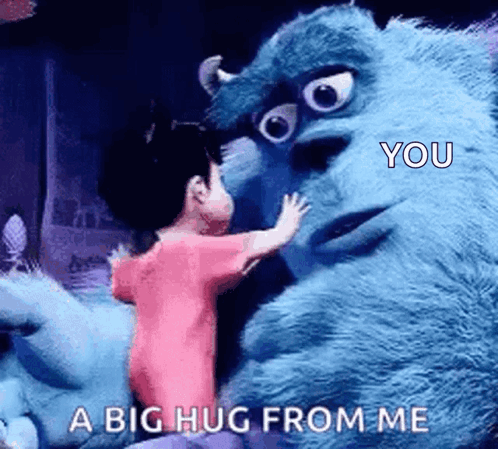
Saludos
@tipu curate 4
Upvoted 👌 (Mana: 35/75) Liquid rewards.
Gracias por el apoyo estimada @damarysvibra Un abrazo